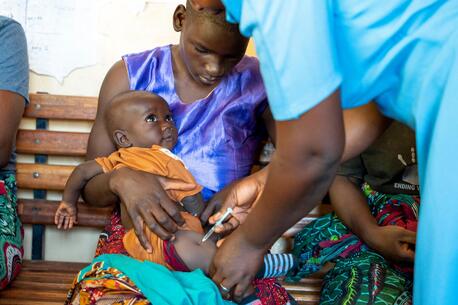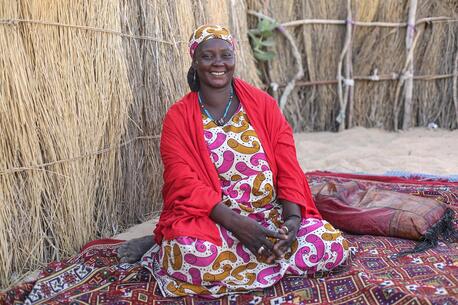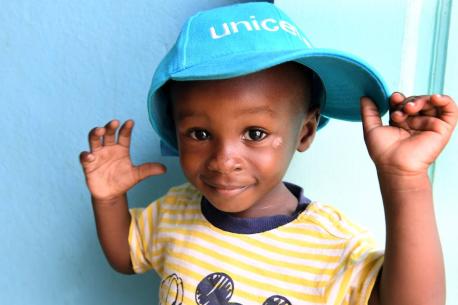
Best Charities to Donate to
In deciding what is the best charity to donate to in 2021, we ought to look at the past year for context: 2020 is a year no one will ever forget. The unchecked spread of COVID-19, which has killed over 1.3 million people worldwide, closed schools and shaken the global economy, has exacerbated already existing crises in such places as Syria and Yemen and brought 270 million people to the brink of starvation. 2020 will also be remembered as one of the worst hurricane and cyclone seasons in years. With climate change intensifying flooding and destruction, 2020 has logged more tropical cyclones than ever before, exacting an incredibly heavy toll on the world’s children.
There's never been a better time to give to those in need and support charities in 2021 that are committed to safeguarding the planet and the quality of life for future generations. But with so many worthy organizations tackling an endless array of problems, it can be extremely difficult to choose the best charities to support in order to make your donation count.
The best charities to donate to in 2021: How to decide?
Reflecting upon the causes you care about and the problems you most wish to solve will help you decide which charities are best to donate to. This year, with the world desperate for a COVID-19 vaccine, ending the pandemic is a global preoccupation — and certainly top of mind for UNICEF. As COVID-19 vaccines become available, UNICEF will lead global efforts to deliver vaccine doses for more than 180 low- and middle-income countries.
This breakthrough can't come soon enough. The new coronavirus coupled with climate change has heightened the severity of risks already facing the world's most vulnerable children, including human trafficking, hunger and nutrition, public health, equity, domestic violence, civil rights and water scarcity. If you want to maximize your impact, it's hard to find a cause that touches more lives than the global fight to stop COVID-19.
As head of procurement and supply for COVAX — a multilateral initiative led by the World Health Organization and Gavi, the Vaccine Alliance to ensure equitable distribution of the COVID-19 vaccine, UNICEF is taking a leading role in relieving the pandemic's impacts on children. With a presence in 190 countries and a 70-year-plus history of being in the right place at the right time, UNICEF is ideally suited to the task ahead. By the end of 2021, UNICEF and its partners aim to have 2 billion COVID-19 vaccine doses available across more than 180 countries. That's enough to protect high-risk and vulnerable people, as well as front-line health workers, who are essential to averting a setback in decades' worth of progress in child health.
Every child is precious — no matter where he or she lives. And UNICEF believes that all children, especially the most vulnerable, come into this world with the same basic human rights. This year, the 31st anniversary of the Convention on the Rights of the Child, UNICEF has waged a tough battle to keep COVID-19's ripple effects from eroding those rights.
In countries like India, UNICEF has helped girls whose families' economic pressures have nearly sacrificed them to child marriage. With schools closed and families falling into extreme poverty, UNICEF has strengthened its child-protection systems to combat child labor and trafficking, especially among migrant children. For decades, UNICEF has upheld children’s rights to clean water, nutritious food, health care, education and the basic freedoms we can’t imagine children living without. Though the pandemic has complicated those efforts, UNICEF won't stop addressing the world's toughest problems until every child has the childhood they deserve.
Best charity for climate change
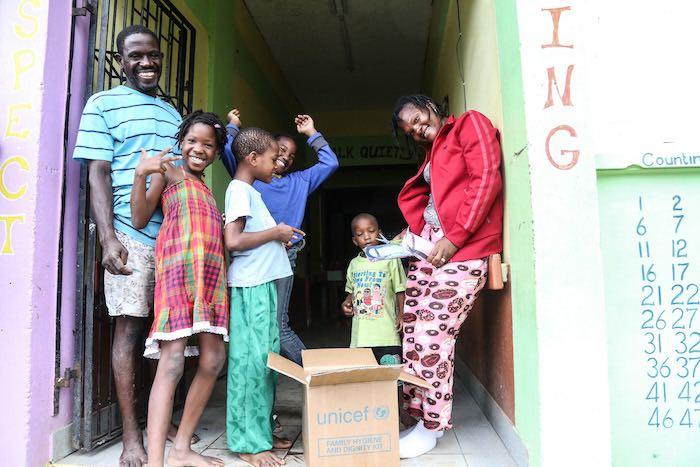
After Hurricane Matthew hit Dominica in 2017, UNICEF delivered hygiene kits to families living in shelters in Roseau, the capital, in less than 24 hours. © UNICEF/UN0127075/Moreno Gonzalez
UNICEF is working to keep climate change top of mind for governments and policy makers, believing it to be one of the most critical issues facing children today. The rise in climate-related disasters and extreme weather over the past few years makes this work increasingly important because although children contribute the least to greenhouse gas emissions, the most marginalized children are the ones hardest hit by the impacts of climate change.
UNICEF works to protect children endangered by climate change during extreme weather events by providing clean, safe water and sanitation, medicine to combat waterborne diseases and other emergency medical supplies as well as educational programs so that in an emergency, like a hurricane, flood, earthquake or drought, children don’t fall too far behind in their learning. Additionally, UNICEF promotes education on environmental issues to empower children to become champions of the environment they will inherit.
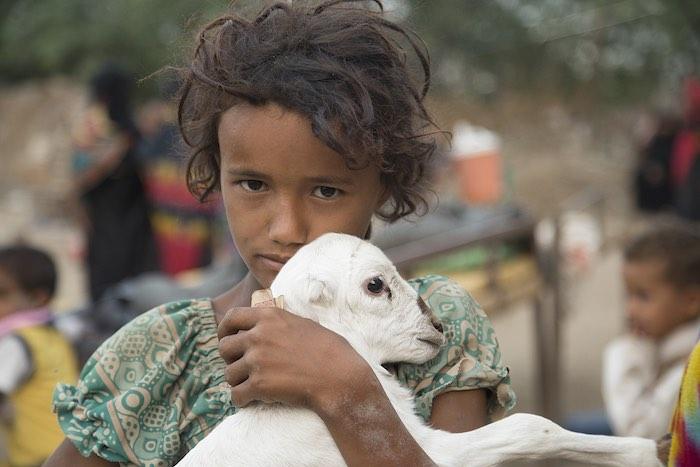
In Yemen, violence and malnutrition threaten millions of children like Saba, who is severely malnourished with complications, including fever, a cough and diarrhea. Saba’s parents and siblings are vulnerable to malnutrition, too, because the family has lost its income due to the war. But thanks to UNICEF, Saba received treatment and is now recovering with visits at an outpatient clinic where she goes for checkups and Ready-to-Use Therapeutic Food. © UNICEF/UN0276434/Almahbashi
Peace
Today, the number of countries with violent conflicts is the highest it has been in 30 years. One in four children across the globe lives in a country affected by conflict or disaster. In conflict-torn places like Libya, Somalia, Cameroon and Afghanistan, attacks on schools and health facilities are disproportionately harming children.
After a visit last year to Syria and Yemen, UNICEF Executive Director, Henrietta Fore issued this plea: “To everyone, we say, we need peace. It's what children need. Children are always the most fragile and are often the first victims in a war and in violence. We as a world have often forgotten that we need to look after children. They are our future.”
For 70 years, UNICEF has looked after the children forced to live in some of the world's most dangerous places. When conflicts have destroyed children's homes, schools and the infrastructure they need to stay healthy and safe, UNICEF steps in to provide clean water, health care, nutrition, protection and learning opportunities.
Health
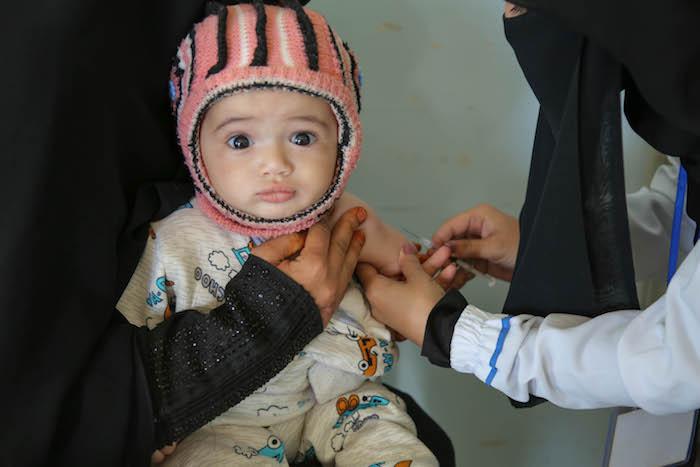
On February 9, 2019 in Yemen, a child is vaccinated in Bani Alhareth, Sana’a during a measles and rubella vaccination campaign. © UNICEF/UN0284441/ Alaidroos
An estimated 15,000 children under the age of 5 die every day from preventable causes. Meanwhile, 50 million displaced children are on the move today, creating serious health threats that can negatively impact their daily lives and their futures.
UNICEF does whatever it takes to protect children’s health, employing tried-and-true interventions like immunization against diseases we can prevent and innovations like the drones being used to deliver medical supplies to rural Malawi. Last year, 41.3 million children were vaccinated against measles and 65.7 million children received their DTP3 / penta vaccines, protecting them from five life-threatening diseases — diphtheria, pertussis, tetanus, hepatitis B and Hib.
Charities for Children: Child Protection
Giving to charities that manage child protection cases is one of the best ways to donate to children. 535 million children — nearly 1 in 4 — live in countries affected by conflict or disaster, making them far more exposed to the threat of violence and psychological harm. But violations of a child's right to protection don’t just occur in war zones or places hit by a natural disaster. They occur in every country, cutting across ethnic and economic lines.
Every seven minutes an adolescent is killed by an act of violence. If current rates prevail, more than 150 million girls will marry before their 18th birthday and 68 million more girls will undergo female genital mutilation by 2030. UNICEF protects children around the world from violence, exploitation and abuse by working with governments to develop policies that address the risks to children, promoting legislative protections and working on the ground to help children who’ve been assaulted, abused, exploited, trafficked or separated from their parents. In 2020, UNICEF and partners helped 1.5 million children and caregivers access mental health and psychosocial support.
Best Charity to Donate Water
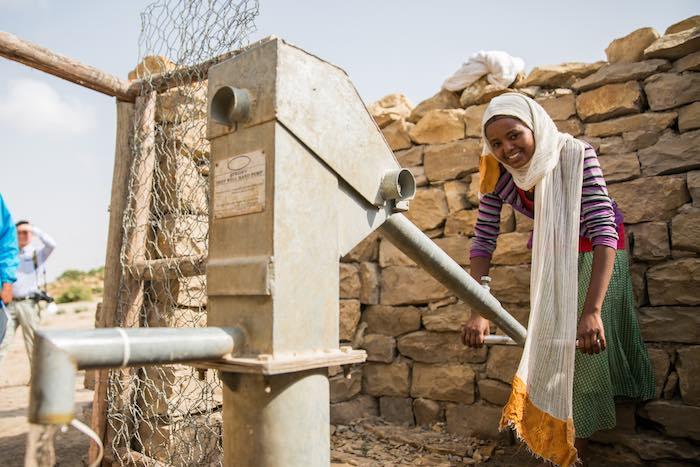
Dry conditions stemming from El Niño have caused severe drinking water shortages for Ethiopia’s people and livestock. To help families survive, UNICEF funded wells and water treatment to ensure 5,300 people like 16-year-old Silas, seen here drawing water from the well in her village, have access to safe drinking water. © UNICEF/UN024857/Sewunet
Donating to support UNICEF’s water, sanitation and hygiene programs is a great way to have a significant impact on children’s health and the communities where they live. According to the World Health Organization, for every $1 invested in water and sanitation, there’s an average economic return of at least $4. Programs that help children and families maintain good hygiene are another truly cost-effective way to ward off disease and keep everyone — grownups and kids — in good health.
Since 2014, more than 150 million people in 113 countries have benefited from improved water supplies thanks to UNICEF, which works with governments, community-based organizations and families to ensure children and their families have clean water and sanitation — even during emergencies. UNICEF also improves sanitation and hygiene facilities in schools, which helps keep attendance up and empowers children to take positive steps, like handwashing, to keep themselves and their communities healthy. In 2020, 14.2 million people accessed safe water for drinking, cooking and personal hygiene.
Nutrition
Children can’t survive without proper nutrition, both before they are born and after. Tragically, though, every day, nearly 7,500 children under age 5 die from malnutrition. The numbers who are chronically malnourished are just as sobering. 155 million children — about 1 in 4 worldwide — are chronically malnourished, raising the risks of infection, disease and long-term health risks. Children who are malnourished also have trouble learning, which over the long term can keep them from reaching their full potential. UNICEF safeguards nutrition from a child's first day of life by promoting breastfeeding, her first and best protection from illness and disease. UNICEF also provides pregnant women and children with nutritional supplements and vitamins to keep babies and moms healthy before and after birth. In 2020, UNICEF treated 1.5 million children for severe acute malnutrition.
UNICEF works hard to prevent the conditions that can tip a malnourished child into crisis. But for those who do become severely malnourished, UNICEF has the answer: Ready-to-Use Therapeutic Food, which can literally bring a child back to life.
Education
If you care about education, UNICEF works in 155 countries to give the most marginalized children the chance to learn. What's more, supporting education is one of the smartest investments you can make to improve a child's life. If all students in low-income countries left school with basic reading skills, an estimated 171 million people could be lifted out of poverty, which would be equivalent to a 12 percent reduction in global poverty.
A disadvantaged child who can go to school has a chance to break the cycle of poverty that can grip a family for generations. On average, just one additional year of education can increase a child’s earnings later in life by 10 percent. For that reason alone, supporting education is one of the most meaningful ways to donate to children.
Education is also crucial to empowering girls, who all too often don’t get their fair chance to learn. From 1970 to 2009, the world saw immense reductions in child mortality. An estimated 50 percent of that progress is linked to an increase in the education of girls and young women.
Despite those gains, 263 million children are out of school. Some 63 million children are missing out on their education due to conflict and crisis.
From the safe learning spaces in Yemen to the tent schools of Syria, UNICEF is helping children build the skills they’ll need to forge a better future. In 2018 UNICEF helped 5.9 million children keep learning. In 2020, 2.4 million children accessed formal or non-formal education, including early learning.
Empowering girls and women via charity donations in 2021
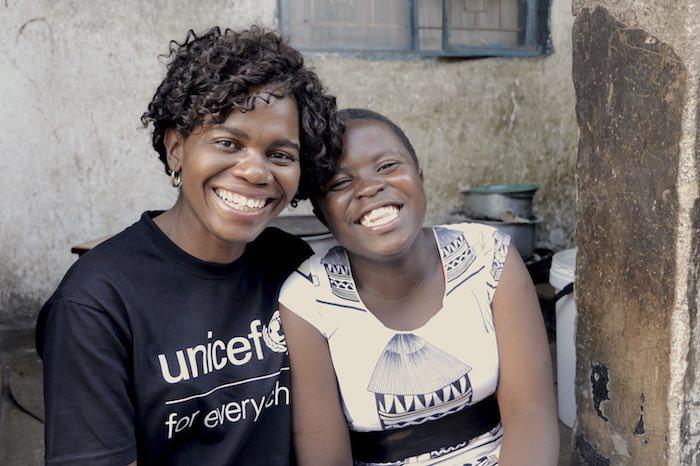
Early marriage is a major barrier to girls’ education in Malawi, where families are more likely to fund school fees for their sons than for their daughters. But thanks to the K.I.N.D. Fund, a charitable partnership between UNICEF and MSNBC's Lawrence O’Donnell, girls like Joyce (above right) are getting the scholarships they need to stay in school and hatch dreams for bright futures. © UNICEF/UN0119434/Chagara
Discrimination against girls can begin at birth. Infant girls are often deprived of both medical care and nutritious food, a dangerous form of discrimination that has contributed to higher mortality rates for girls. Girls’ perceived inferiority in some cultures can also limit their ability to go to school, live free from violence, make autonomous decisions about their lives and, down the line, earn an income that can support them and their children.
The novel coronavirus pandemic has only made things worse. As poverty and inequality grows, the essential services — health care, education and protection — that protect children have been disrupted. The health, well-being and futures of girls are especially threatened. COVID-19 has stalled progress on gender equality and negatively impacted women and girls with domestic violence on the rise. Negative coping mechanisms are exposing girls to sexual abuse, child marriage and pregnancy. In Niger, nearly 76 percent of all girls are married before the age of 18. In 2021, UNICEF is seeking to help prevent gender-based for 17 million children and women in danger.
How do I find out if a charity is legitimate?
Before you write a check or provide your credit card details, you'll want to make sure the charity is legitimate and that the maximum amount of your donation will reach those in need. Doing your research will help you feel good about making your charity donations, especially if you are looking to make your gift monthly. Below are a few research tools to help you choose the best charities to donate to:
Four tools for finding the best charities in 2021 to donate to that help children:
IRS Nonprofit Charities Database: Enter the name of any charity you wish to check out into the site's Exempt Organizations Select Check Tool to ascertain its 501(c)(3) tax exemption status, which will tell you whether or not your donation will be tax-deductible.
Charity Navigator: This organization rates charities based on their financial health, accountability and transparency to help prospective donors gauge how efficiently a charity will use their support, its programs' and services' performance over time, and the charity's commitment to accountability and transparency.
UNICEF USA receives the highest ratings for accountability and transparency from Charity Navigator, and our program expense ratio of 89 percent means we are a highly efficient charity, as defined by independent monitors, with 2.7 percent of our expenses going to administration and 8 percent to fundraising. This means that, out of every dollar spent, 89 cents goes directly toward helping children. We spend just 8 cents of every dollar on fundraising costs, and 3 cents on administration.
Better Business Bureau Wise Giving Alliance: BBB rates organizations according to 20 metrics, including governance and oversight, effectiveness, finances, solicitations and informational materials. Compliance with each standard earns charities one point. Organizations receiving BBB accreditation — like UNICEF USA — score a perfect 20.
To learn more about donating to UNICEF USA and our monthly-giving program read this story.
This story may also help you when deciding what is the best charity you can donate to to help children.
Top photo: Sixteen-month-old Israel plays in a UNICEF-supported health center outside Abidjan, the capital of Côte d'Ivoire, where his pregnant mother came for a consultation. © UNICEF/UN0285076/Frank Dejongh

